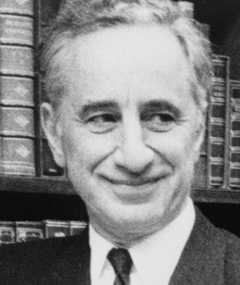| Kazan, Elia
 |
Date of birth
7 September 1909, Istanbul, Turkey
Date of death
28 September 2003, New York City, U.S.
Mini biography
Elia Kazan (September 7, 1909 - September 28, 2003)
Kazan was born Elias Kazancoglu in Istanbul to a Greek father from Kayseri, Turkey and a Greek mother from Istanbul, where her family were cotton merchants who imported cotton from Manchester, England, and sold it wholesale in Istanbul to various merchants, both Greek and Turkish, who took the goods out to the provinces.
His family emigrated to the United States in 1913 and settled in New York City, where his father, George Kazanjoglu, became a rug merchant. Kazan’s father expected that his son would go into the family business, but his mother, Athena (née Sismanoglou), encouraged Kazan to make his own decisions.
His family name ‘Kazanjoglou’ (an alternate spelling is Kazantzoglou) is Turkish, meaning “The son of a cauldron maker”, where the root word ‘kazan’ means cauldron or boiler.
“I like directors who come on the set and create something that’s a little dangerous, difficult or unusual.”
It was and still is common to find people of Greek, Jewish, Assyrian, Armenian, and Kurdish lineage with Turkish family names or where the root words in the names are uniquely Turkish.
Kazan attended public schools in New York City and New Rochelle, New York. After graduating from Williams College in Massachusetts, Kazan studied at Yale University’s School of Drama.
In the 1930s, Kazan acted with New York’s Group Theatre, alongside (among others) Lee Strasberg, Clifford Odets, and Stella and Luther Adler.
During this period, Kazan earned his nickname ‘Gadg’, short for Gadget – he never learned to love the name. For about 19 months in 1934-36, Kazan was a member of a secret Communist cell.
He became one of the most visible members of the New York elite. Kazan’s stage acting credits include Men in White, Waiting for Lefty, Johnny Johnson, Golden Boy, and the 1940 revival of Liliom.
Kazan directed A Streetcar Named Desire (1947) and Cat on a Hot Tin Roof (1955), two of the plays that made Tennessee Williams a theatrical and literary force.
He also directed All My Sons (1947) and Death of a Salesman, (1949) the plays which did much the same for Arthur Miller. He received three Tony Awards, winning for All My Sons, Death of a Salesman, and J.B.
Kazan’s history as a film director is equally noteworthy, if not more impressive. He won two Academy Awards for Best Director, for Gentleman’s Agreement (1947) and On the Waterfront (1954).
He elicited critically acclaimed performances from actors such as Marlon Brando and Oscar winners Vivien Leigh, Karl Malden and Kim Hunter in A Streetcar Named Desire (1951) (the film version of Tennessee Williams’ play), James Dean and Oscar winner Jo Van Fleet in East of Eden (adapted from the John Steinbeck novel), Montgomery Clift, Lee Remick, and Jo Van Fleet in Wild River (1960), reportedly one of Kazan’s favorite films, Natalie Wood in Splendor in the Grass and Andy Griffith in A Face in the Crowd. Before he began directing films, however, he occasionally played supporting roles in them, one of those films being the 1941 Blues in the Night.
Kazan remained controversial in some circles until his death for testimony he gave before the House Un-American Activities Committee (HUAC) in 1952, in which (after previously refusing to do so) he named associates from his days as a member of the Communist Party of the United States of America in the 1930s.
He began his career as an actor and stage manager for New York’s Group Theatre Company, which was just recently established. His involvement in the group led him to join the “American Communist Party” in 1934.
He was only involved with the Communist Party for a short time; however, he was quickly recognized as a potential communist by the HUAC, a group that was investigating the motion picture industry because of growing concern over communists working in the industry.
A blacklist of names was being circulated, and those on the list could be in serious trouble and be denied work in the film industry again. The Committee called on people to identify others, and many refused; however, Kazan in his testimony named eight other members of the Communist Party, including some who had worked with him in The Group Theater; all the persons so named were already known to HUAC.
Among the people Kazan named in his testimony were two individuals, Phoebe Brand and Tony Kraber, whom Kazan had himself recruited into the Communist Party in the 1930s. Others included actor Zero Mostel, who was blacklisted and unable to work for the rest of the 1950s.
When Kazan received an Honorary Academy Award in 1999, surviving blacklistees, including Phoebe Brand, as well as some other actors, protested. Actress Kim Hunter, another subject of the blacklist, albeit one whose career recovered, stated that Kazan deserved the honor.
Kazan defended his actions long after the fact, writing, “I’d had every good reason to believe the party should be driven out of its many hiding places and into the light of scrutiny, but I’d never said anything because it would be called ‘red-baiting.’ […] The horrible, immoral thing’ that I did I did out of my own true self.”
Blacklisted director and former friend Jules Dassin refused to forgive Kazan, stating that Kazan lied about why he turned on his friends. In an interview with the French television program “Ciné-Parade”, available in the supplemental materials on the Night and the City DVD, Dassin states that he knew Kazan could not live without his work and the threat of being separated from it was his motivation for turning on his friends. Kazan’s alleged lies about his motives are what Dassin found unforgivable. —Wikipedia
Director - Selected filmography
-
East Of Eden (1955)
-
On The Waterfront (1954)
-
A Streetcar Named Desire (1951)
-
Viva Zapata! (1952)
|

